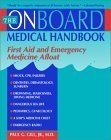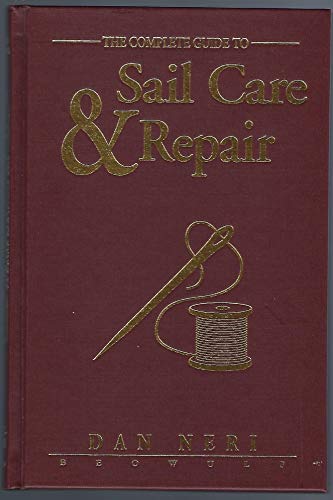Nautical books inspire, entertain, and inform–they can also get you out of a sticky situation! In this post, I’ll share the sailing reference books that travel with us wherever we sail. The books cover topics like boat systems, diesel engines, marine electrics, and seamanship and have been invaluable resources, especially when we don’t have Google at our fingertips.
If you’re hankering after a nautical novel or some adventure-packed nautical non-fiction, you’ll want to read our list of the top 25 sailing books.
A quick note that this post contains affiliate links (so, if you purchase through a link we’ll earn a small commission). All opinions are our own.
It’s easy to romanticize life-sans-internet in remote anchorages or on long ocean passages, but everything changes when you have a pressing query like, “Engine won’t start,” or, “What do two yellow flashing navigation lights mean?”
Being a self sufficient sailor means preparing for the worst, carrying tools, and spare parts. So, why not carry the right information?
I’ll never forget an experience in our early days of sailing. We were motor sailing through currents on the inside of Vancouver Island when the engine quit.
Robin dashed below decks and half-disappeared into the engine compartment while I sailed the boat and looked for potential anchoring spots. With one hand on the wheel, I used the other hand to do what any good Millennial would, search online for troubleshooting tips. Don’t fail me now Google!
The cell phone coverage was so spotty as to be almost useless. The few pages I could open on engine troubleshooting weren’t all that relevant. Arghhh.
Fortunately, Robin got the engine going again. The problem had been a minor airlock, but it was a pretty tense 10 or 15 minutes and a serious wake-up call.
Being a self sufficient sailor means preparing for the worst, carrying tools, and spare parts. So, why not carry the right information? Of course, we should all have a good understanding of our boats, systems, and seamanship before we step off the dock, but human brains are imperfect. We forget things (especially on sleep-deprived overnight passages), so it’s important to have a trusted source to refer to.
The nautical books below are a list of practical sailing reference books we’ve found most helpful. These are the books that we carried onboard when we sailed from Vancouver, down through the United States to Mexico, and then across the Pacific to Australia.
These large format marine books are not always the cheapest, but they’re a great investment (ours have paid for themselves many times over!). I would highly recommend adding them to your floating library if you’re cruising in remote areas, or if you dream of doing so one day. You’ll likely have these nautical books for the rest of your sailing career, so why not start reading them now?
5 of the best nautical books to keep onboard
1. Chapman’s Piloting & Seamanship, 69th Edition
This is a veritable nautical encyclopedia and one of the most trusted books in boating—it’s been in print for over 100 years! The latest version covers a broad range of topics: navigation, seamanship, safety, weather, onboard systems, and much more. So, if you can only take one book, this is it!
Chapman’s came in handy when we accompanied a disabled yacht into Hiva Oa in French Polynesia after a 26-day Pacific crossing. We thought we may have to tow the boat into the harbor, so I read Chapman’s chapter on towing to brush up. I was pretty sleep deprived after three and a half weeks at sea, so it was reassuring to review the fundamentals.
2. Boat Owner’s Mechanical & Repair, 4th Edition, by Nigel Calder
If you’re familiar with the saying, “Cruising is just fixing your boat in exotic places,” you’ll appreciate the value of a good reference manual on boat mechanical systems.
Boat system’s guru, Nigel Calder, explains how to maintain, repair, and improve your boat’s systems. The book includes chapters on batteries, chargers, inverters, generators, marine electronics, diesel engines, transmission, propulsion, refrigeration, air-conditioning, plumbing, heaters, and rigging (just to name a few).
I’m also a big fan of Nigel Calder’s online course, Boat Electrics 101, which I’d highly recommend for a deep dive into boat electrical. It may seem complicated, but boat electrical systems are pretty straightforward when you understand the basics. Learning how to wire our boat was one of the most valuable skills I gained for offshore cruising.
3. Onboard Medical Handbook, by Paul G. Gill
Every boat should carry a well-stocked first-aid kit and manual. I really like this book in particular, because it’s boater-specific and deals with everything from shock and CPR to sunburn and seasickness. It’s common to get flustered in an emergency, so have a trusted source that can guide you step by step.
Fortunately, over three years of full-time cruising, we never had to use this book in an emergency on our own boat. However, in our group of a dozen or so buddy boats, who crossed the Pacific in 2017, there were several serious medical issues at sea or in remote anchorages including concussions, internal bleeding, and a suspected stroke.
4. The Complete Guide to Sail Care and Repair, by Dan Neri
If you’re going sailing for any length of time, you’ll want to put together a good sail repair kit and a book that explains basic patches and repairs.
I’ve used this book, written by the CEO of North Sails, on many occasions. Even though we bought brand-new sails for our 3-year trip, I still had to sew several patches, replace sail slides, and make other repairs.
This book is a very worthwhile investment. It taught me how to catch and fix damage early, preventing much more expensive damage that would have kept us in port for days.
5. Marine Diesel Engines, 3rd Edition, by Nigel Calder
We used Nigel Calder’s book (2nd edition) on Marine Diesel Engines many, many, times over the years. It explains how a marine diesel engine works, basic maintenance and repair, and covers troubleshooting in depth (this is the most dog-eared section in our copy!).
This book was invaluable on a passage from Ensenada to Cabo San Lucas. We had little wind and lots of swell. Our single-handed buddy boat’s engine quit. We read him the relevant troubleshooting sections over the VHF and an hour later his engine roared back to life.
What are some of your favorite nautical books? Let us know in the comments below.
Fiona McGlynn is an award-winning boating writer who created Waterborne as a place to learn about living aboard and traveling the world by sailboat. She has written for boating magazines including BoatUS, SAIL, Cruising World, and Good Old Boat. She’s also a contributing editor at Good Old Boat and BoatUS Magazine. In 2017, Fiona and her husband completed a 3-year, 13,000-mile voyage from Vancouver to Mexico to Australia on their 35-foot sailboat.






